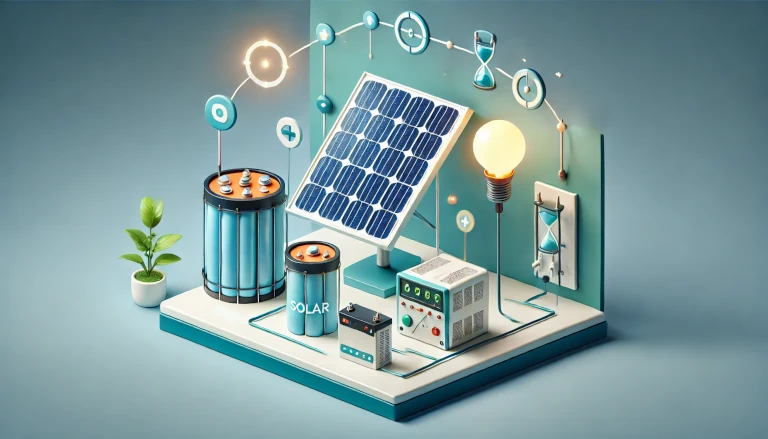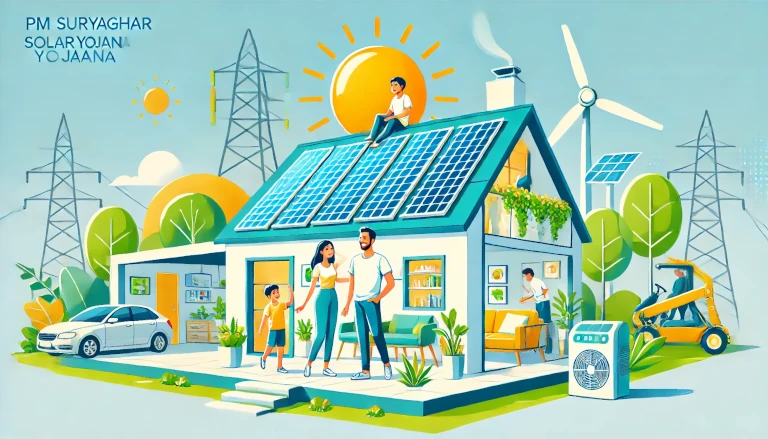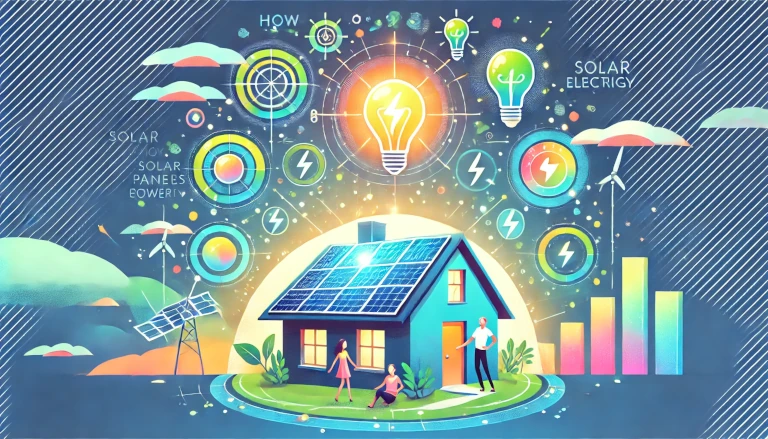Off-grid rooftop solar systems are a sustainable energy solution that allows you to generate and store your own electricity without relying on the main power grid. This system is especially useful for remote areas, emergency backup, and anyone looking to reduce their carbon footprint and increase energy independence. An off-grid solar system provides a complete power source by combining solar panels, batteries, and inverters, allowing users to produce electricity directly from sunlight and store it for later use.
What is an Off-Grid Rooftop Solar System? 🌞
An off-grid solar system is a standalone power solution designed to work independently from the main electrical grid. Unlike grid-tied systems that feed excess energy back to the grid, off-grid systems are completely self-sufficient. They collect sunlight through solar panels, convert it into electricity using an inverter, and store surplus power in batteries for when the sun isn’t shining.
Key Components of an Off-Grid Solar System:
- Solar Panels 🌞:
The system’s primary component, solar panels, capture sunlight and convert it into direct current (DC) electricity. - Charge Controller ⚡:
This device regulates the power going into the batteries, preventing overcharging and prolonging battery life. - Battery Bank 🔋:
Batteries store excess power generated during the day, ensuring a continuous supply of electricity even when sunlight is unavailable. - Inverter 🔄:
The inverter converts the DC electricity stored in batteries to alternating current (AC), which is the standard form of electricity used by most home appliances.
Benefits of an Off-Grid Rooftop Solar System 🌍
- Energy Independence 🏠:
Off-grid systems allow you to be self-sufficient, ensuring a reliable power supply even during grid outages or in areas without grid access. - Environmental Impact 🌱:
By generating electricity from a renewable source like sunlight, off-grid systems reduce greenhouse gas emissions and reliance on fossil fuels. - Cost Savings 💰:
While the initial setup can be costly, off-grid systems eliminate monthly electricity bills, providing long-term savings. - Scalability and Flexibility 🔄:
Off-grid systems are modular, meaning you can start small and expand your system as your energy needs grow.
Example Use Cases for Off-Grid Rooftop Solar Systems 🏞️
- Remote Cabins and Rural Areas 🌄:
In places where grid power is unavailable or unreliable, off-grid solar provides a dependable energy source, eliminating the need for noisy, polluting generators. - Backup Power for Emergencies 🆘:
An off-grid system can serve as a backup during power outages, ensuring essential appliances like refrigerators and lights remain operational. - Sustainable Homes and Eco-Friendly Living 🌱:
For those looking to reduce their carbon footprint, off-grid solar systems offer a green alternative that supports sustainability and energy efficiency.
Things to Consider Before Installing an Off-Grid Solar System 🧐
- Energy Needs Assessment 📋:
Calculate your daily energy consumption to determine the size and capacity of the solar system you need. This includes all the appliances and devices you plan to power. - Battery Capacity 🔋:
Off-grid systems rely on battery storage, so it’s essential to choose a battery bank that can store enough energy to cover your usage, especially during cloudy days or at night. - System Maintenance 🧰:
Regular maintenance is necessary for optimal performance. This includes cleaning the solar panels and checking battery health periodically.
Is an Off-Grid Solar System Right for You? ☀️
An off-grid rooftop solar system offers a sustainable, independent energy solution for those looking to escape reliance on the grid. With benefits ranging from environmental impact to cost savings, off-grid solar systems are an ideal choice for remote living, emergency backup, and anyone committed to reducing their carbon footprint. With careful planning and an understanding of your energy needs, you can enjoy reliable, eco-friendly power all year round.
Discover more from Green Ecosystem - Renewable Energy, Agriculture, and Environmental Sustainability
Subscribe to get the latest posts sent to your email.


